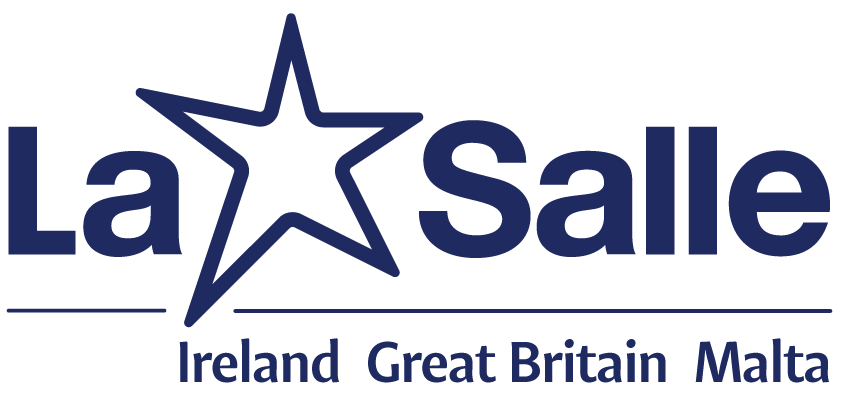Founder’s spirit alive in inspirational story
An inspirational story of one Lasallian’s journey against the odds to qualify as a teacher has highlighted that the spirit of our Founder is very much alive.
The remarkable journey of Kuay Gattot Jany, which has been shared by Br. Dennis Lee, serving at Christ the Teacher Institute for Education (CTIE), also underlines the success of a Lasallian project in South Sudan that aims to help those most in need.
With the help of the Solidarity for South Sudan programme, Gattot made the transition from hunter to university student and now a qualified teacher who will use his talents to assist children in his home of South Sudan.
The thought that being part of the global Lasallian organisation that makes stories like Gattot's possible, is a huge source of hope, zeal and pride to us all.
Kuay Gattot Jany, Class of 2022
Gattot is preparing to graduate in October 2022 from Christ the Teacher Institute for Education (the School of Education at Tangaza University College) with a Bachelor’s degree in English.
Listening to his life story was culture shock for me. In a few moments, you will understand how studying at CTIE had to have been a culture shock for him.
The eldest of three surviving boys to a mother who was the third of four wives of Gattot’s father, this 32-year-old South Sudanese man has lived a life quite unlike most of our readers. His dad had 26 children and was a soldier in the battle against Sudan, a fight that eventually resulted in South Sudanese independence in 2011.
All the wives and children shared the homestead and they lived largely on the blessing of cattle. They relied on the milk, the blood and the meat from the cows. To supplement the diet, the boys were taught to be hunters. So, Gattot became proficient with the spear and regularly hunted antelope.
On rarer occasions, he would join other young men in hunting buffalo. That’s right, buffalo! In rainy seasons, they would hunt near running streams and lure the buffalo to the stream where the buffalo would drown. In dry seasons, they would place themselves near a tree, then spear the buffalo which would charge after the hunters, who would deftly climb the tree. While the buffalo got close, the young hunters would spear the buffalo unto its death.
Since most in the west graduate from university at 22, you may be wondering how it has taken Gattot ten extra years to reach the same goal. He basically did not begin school until he was twelve, in 2002. The languages of instruction in his school were Arabic and his mother tongue, but his dad also wanted him to learn English, so from an early age, Gattot attended English classes at night. Primary school in his village consisted of untrained teachers teaching 13 students who had no seats or tables. With no modern amenities, he learned well enough to warrant attending high school, which he did in Juba (now the capital city of South Sudan), where he lived with some relatives while attending day school.
He completed high school the same year that independence came for South Sudan, so he could not attend university in Sudan. He returned to his village, but life was hard and a struggle, and safety was an issue. The family moved to a United Nations camp where the family had some security, but no freedom.
It was only in early 2016 that he was allowed to leave the camp. A friend had told him about our Lasallian project, Solidarity With South Sudan, so he applied and began a two-year programme, in which he earned a certificate, enabling him to teach in South Sudan. But he aspired to more, so he responded to an advert about the opportunity to pursue Education at a Kenyan university. He arrived very excitedly in Nairobi on August 11, 2018.
Gattot had no mobile phone and had never been exposed to modern technologies. Starting his university career in a building replete with smart boards and current technology was eye-opening. He had to quickly adapt to getting assignments on Moodle and using a computer for virtually all work. Fortunately, he was afforded a laptop computer thanks to the Solidarity project.
Meanwhile, he knew no one among the hundreds of students. Solidarity had arranged for him to live at De La Salle Centre, the Scholasticate for some 30 African Brothers. He smiles as he says, “We’re almost like the Brothers. We are treated very well.”
This affable, shy, quick-learning scholar overcame the early struggles with culture shock and, as he nears the end of his studies, reflects that “I have been blessed to study here. I have learned a lot, and I feel very prepared to return to South Sudan as a very qualified teacher.” He will return to Solidarity in South Sudan and pick up his new teaching assignment in the midst of a school year (which begins in January).
Gattot knows that his students will not have technology but he is unfazed. He will improvise and adapt. For instance, he will use bottles, bricks, crops, local artifacts to illustrate the topic at hand. And he will encourage the installation of solar panels because there is no electricity. Solar will enable him to use the radio as a teaching devise.
How great is the need for qualified teachers in South Sudan? 2.4 million children do not attend school (ever increasing number due to insecurity, displacement, and the collapse of the economy). The literacy rate is a mere 32.5%. Meanwhile, 96% of the teachers have no recognised formal teaching qualifications. And the average monthly salary for teachers has just been increased to 6,000 South Sudanese pounds, which is $15!! (Yes, for one month of teaching!)
God bless Gattot and all those striving to bring education to the world’s newest country, one with tremendous challenges, including educating its youth.


